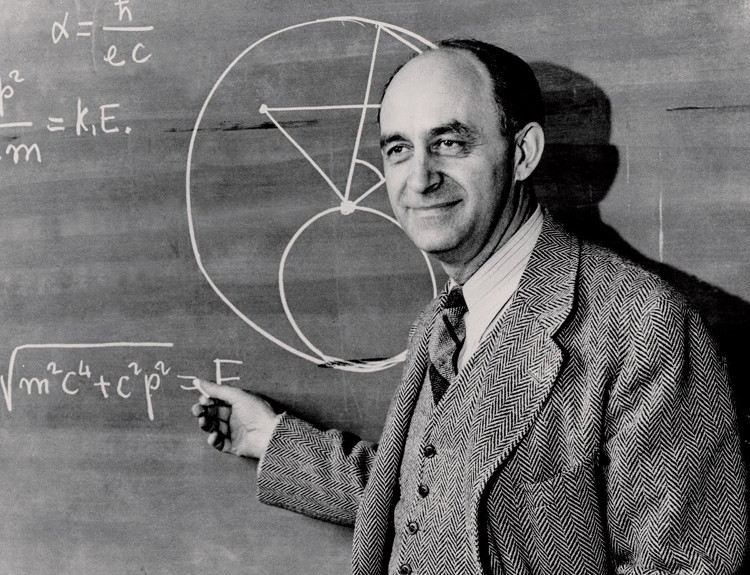Scientist 'Pope' predicts his death
Enrico Fermi, the Italian theoretical physicist, was called "Pope" by his friends because he never made a mistake in his predictions, including his own death.
Among the young physicists working together at the Department of Physics, University of Rome, Italy in 1927, there was a famous physicist named "Il Papa" (Pope) because he had never been wrong. in your comments, according to the Washington Post. That physicist is Enrico Fermi .
In the biography of "Pope of Physics: Enrico Fermi and the birth of the Atomic Age" , two authors Gino Segre and Bettina Hoerlin said that when Fermi was born, his parents sent him to live in a house. Farmer's family until he was 2 1/2 years old. In his teens, Fermi himself studied physics through books in Latin from the 19th century.

Enrico Fermi when teaching in the US.(Photo: Atomic Heritage).
In 1925, Fermi contributed to the work on Wolfgang Pauli's exclusion principle, which opened a new statistical theory that today is called Fermi – Dirac statistics . Based on Pauli's hypothetical "invisible" particle existence, Fermi developed a new model called " neutrino" , which underlies a more complete "weak interaction" theory, describing one of four. Basic interaction of nature.
With the discovery of new chemical elements by bombarding thorium and uranium with slow neutrons, he received the Nobel Prize in Physics in 1938, while fleeing Italy to avoid the Mussolini fascist regime. Scientists later learned that these new elements were the product of a fission reaction.
His most outstanding achievement is building the foundation for the nuclear era of mankind. Fermi played a key role in the Manhattan project to build a nuclear bomb for the United States. He headed a Chicago Pile-1 reactor design and construction engineering team.
In the first test of the atomic bomb in the world of Trinity on July 16, 1945, Fermi demonstrated the ability to calculate complex problems such as estimating the bomb's explosion with simple experiments and public writing. wake up after the envelope.
After World War II, Fermi taught at the University of Chicago and was a leader in theoretical and experimental physics for the next 10 years.
Fermi died of a heart attack in 1954, after suffering from metastatic stomach cancer due to early detection. Despite his illness, Fermi still retains a friendly personality but does not struggle, thinks deeply and often seems sarcastic.
When diagnosed with cancer, he even calculated the time he was alive. Fermi asked his wife to rent a bed in the hospital until November 30, 1954, and he died on November 28."" The Pope "once again guessed right," his biographer author concluded.
- Startled to predict the death of scientist Stephen Hawking
- Vatican built solar homes
- The Pope honors astronomer Galileo
- Discover the pope's special cars
- The omen in the Vatican?
- An American scientist asserts that
- Pope's secret escape in the Vatican City
- The AI predicts the time of death more accurately than the doctor
- The 104-year-old doctor has
- Death story because of the
- The tragic end of the most mysterious scientist in history
- 2005: year of online communication
 The most famous scientific failures in history
The most famous scientific failures in history Mysterious genius mechanic and the machine froze time
Mysterious genius mechanic and the machine froze time The son carries the 'bad gene' of genius Albert Einstein
The son carries the 'bad gene' of genius Albert Einstein Isaac Newton
Isaac Newton